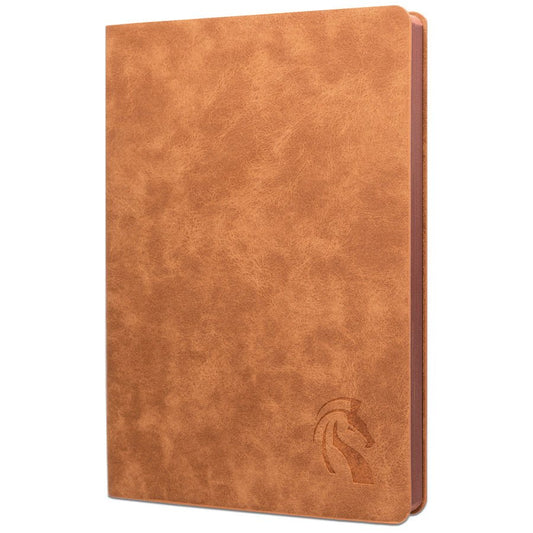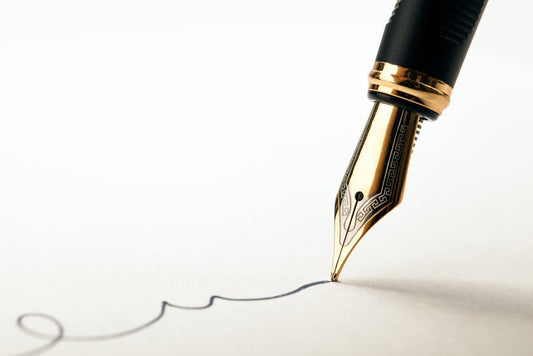
Journaling is more than just putting pen to paper, it’s a therapeutic practice that can significantly enhance mental well-being. By documenting thoughts and feelings, individuals can gain clarity, reduce stress, and foster a deeper understanding of their emotions. This article delves into the benefits of journaling, particularly in the pursuit of happiness, and how it can serve as a powerful tool for mental health.
Key Takeaway
-
Journaling fosters emotional awareness and clarity, aiding in stress reduction and anxiety relief. (1)
- Regular journaling can enhance self-reflection, leading to personal growth and improved mood.
- Gratitude journaling rewires the brain to focus on positivity, promoting overall mental well-being.
The Power of Journaling in Mental Health
Journaling is a practice that has been around for centuries, but its mental health benefits have only recently gained recognition. Many people find that writing about their experiences helps them process emotions and thoughts. It’s like having a conversation with oneself, where the act of writing creates a safe space for exploration and understanding.
When you write down your feelings, you might notice a shift in your perspective. This is because journaling encourages emotional processing. It allows individuals to externalize their thoughts, which can lead to a clearer understanding of their feelings. This clarity can be crucial in managing stress and anxiety, as it provides a way to confront and organize chaotic thoughts.
Journaling and Mental Clarity
Writing regularly can significantly enhance mental clarity. When thoughts swirl around in the mind, they can become overwhelming. Journaling acts as a mental decluttering tool. By transferring thoughts onto paper, individuals can prioritize their feelings and goals. This practice can help in identifying what truly matters, allowing for better decision-making.
For instance, if someone is feeling anxious about a particular situation, writing about it can help dissect the worry. They might find that the fear is rooted in uncertainty, which can be addressed through planning or seeking support. This process of reflection is vital for personal growth and emotional regulation.
Reducing Stress and Anxiety Through Writing
One of the most significant benefits of journaling is its ability to reduce stress and anxiety. When individuals express their thoughts and feelings through writing, they create emotional distance from their worries. This distance can lead to clearer problem-solving and emotional relief.
Studies have shown that journaling can lower cortisol levels, the primary stress hormone, by up to 23%. (2)
This reduction in stress hormones can lead to better overall mental health and immune function. It’s a simple yet effective way to manage the pressures of daily life.

Cultivating Gratitude with a Journal
Gratitude journaling is a specific practice that focuses on recognizing and appreciating the positive aspects of life. By writing down things they are grateful for, individuals can rewire their brains to seek joy and positivity. This shift in focus can significantly improve mood and resilience. (3)
For example, someone might write about three things they appreciate each day. Over time, this practice can lead to a more optimistic outlook on life. It encourages individuals to notice the good amidst challenges, fostering a sense of well-being.
Emotional Awareness and Self-Reflection
Journaling promotes emotional awareness, which is essential for mental health. By regularly reflecting on feelings, individuals can better understand their emotional triggers and responses. This understanding can lead to improved coping skills and emotional regulation.
For instance, if someone notices a pattern of feeling down after certain interactions, they can explore these feelings in their journal. This self-reflection can lead to insights about boundaries or the need for self-care, ultimately contributing to personal growth.
Journaling as a Coping Mechanism
In times of stress or trauma, journaling can serve as a powerful coping mechanism. Writing about difficult experiences can help individuals process their emotions and gain perspective. This practice aligns with the Emotional Disclosure Theory, which suggests that expressing feelings can lead to healing and resilience.
For those dealing with trauma, journaling can be a safe outlet for expressing pain and confusion. It allows individuals to organize their thoughts and feelings, which can be incredibly therapeutic. By externalizing these emotions, they can begin to make sense of their experiences and move towards healing.
Enhancing Sleep Quality Through Journaling
Interestingly, journaling can also improve sleep quality. Many people struggle with racing thoughts at night, which can hinder their ability to fall asleep. By writing down worries or to-do lists before bed, individuals can clear their minds, leading to faster sleep onset and fewer disruptions.
A gratitude journal can also play a role in enhancing sleep. Reflecting on positive experiences can create a calming mindset, making it easier to drift off into restful sleep. This practice not only benefits mental health but also supports overall physical well-being.
Practical Tips for Effective Journaling
To reap the benefits of journaling, it’s essential to establish a consistent practice. Here are some practical tips to get started:
-
Set a Regular Time: Choose a specific time each day to write. This could be in the morning to set intentions or at night to reflect on the day.
-
Use Prompts:If you’re unsure what to write about, use prompts. Questions like “What made me smile today?” or “What challenges did I face?” can help guide your writing.
-
Keep It Simple: Your journal doesn’t need to be perfect. Write freely without worrying about grammar or structure. The goal is to express yourself.
-
Incorporate Gratitude: Make it a habit to write down at least one thing you’re grateful for each day. This can shift your focus towards positivity.
- Reflect on Progress: Periodically review your journal entries to see how you’ve grown. This reflection can boost self-esteem and motivation.

FAQ
How does journaling benefit mental health through expressive writing therapy and emotional processing writing?
Expressive writing therapy works by helping you process tough feelings through the therapeutic writing process. When you practice emotional processing writing regularly, you're essentially doing writing therapy for anxiety and other challenges.
The journaling benefits research shows that this kind of emotional expression can lead to stress hormone reduction and even the immune system benefits journaling. It's a powerful tool for journaling and emotional control that anyone can start today.
What's the connection between mental clarity journaling, organizing thoughts journal, and journaling for mental clarity?
Mental clarity journaling helps you sort through the messy thoughts in your head. When you focus on organizing thoughts journal style, you're training your brain to think more clearly.
Journaling for mental clarity works because writing forces you to slow down and make sense of what you're feeling. This process supports journaling and brain health while improving neuroplasticity journaling pathways. Think of it as giving your mind a good cleaning.
Can reducing stress journaling and anxiety relief journaling really help with journaling to manage anxiety symptoms and writing to reduce rumination?
Absolutely. Reduce stress journaling works through several journaling and stress relief techniques that calm your nervous system. Anxiety relief journaling helps you externalize worries instead of letting them spin in your head.
When you practice writing to reduce rumination and focus on journaling to manage anxiety symptoms, you're creating distance from anxious thoughts. Studies even show journaling to reduce cortisol levels, which directly impacts how stressed you feel.
How do gratefulness diary, gratitude journal techniques, and journaling prompts happiness support journaling for happiness and journaling to boost optimism?
A grateful diary shifts your focus toward what's going well in life. Using gratitude journal techniques and happiness journal ideas, you train your brain to notice positive moments.
Journaling prompts happiness by creating a record of good things you might otherwise forget. This practice of journaling for happiness combined with journaling to boost optimism rewires your thinking patterns over time. It's like building a muscle for noticing joy.
What role does emotional awareness journaling play in mood tracking journal practices, tracking moods journal, and journaling emotional regulation?
Emotional awareness journaling teaches you to recognize what you're actually feeling. When you maintain a mood tracking journal or focus on tracking moods journal entries, patterns emerge that you'd otherwise miss.
This awareness is essential for journaling emotional regulation and journaling and emotional intelligence development. You can't manage feelings you don't notice. The process also supports journaling and emotional clarity, helping you understand why certain situations affect you.
Conclusion
Journaling your pursuit of happiness is not just a trend, it’s a scientifically backed practice that can significantly boost mental well-being. By fostering emotional awareness, reducing stress, and cultivating gratitude, journaling serves as a powerful tool for personal growth.
Whether you’re dealing with anxiety, seeking clarity, or simply wanting to enhance your happiness, incorporating journaling into your daily routine can lead to profound changes. So, grab a notebook and start writing about your mental health.
References
- https://www.urmc.rochester.edu/encyclopedia/content?ContentTypeID=1&ContentID=4552
- https://www.reflection.app/blog/benefits-of-journaling
- https://pmc.ncbi.nlm.nih.gov/articles/PMC6305886/














